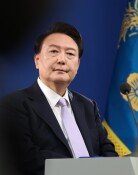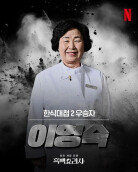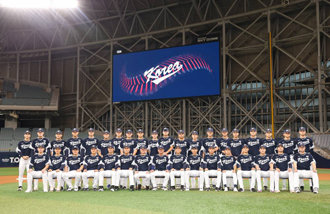Japanese textbook controversy (2)
Since some contents of the history textbook authored by the Japanese Society for History Textbook Reform were revealed, relations between Korea and Japan began to be strained. There are three points of contention: the possibility of the Japanese government`s intervention in the authorization of the textbooks, Korea`s interference with Japan`s domestic affairs, and suspicions of leaks of the textbook`s contents.The key point was to revise the distorted historical facts, yet differences between the two countries also resulted in other problems. With regard to the contents of the textbooks that were revealed on Tuesday, Korea and Japan came up with different viewpoints.
The Korean side distrusted the Japanese assertion that it was not in a position to meddle in the making of the textbooks on the grounds that the government is not the author of the textbooks.
Japan has enforced the government authorization system for school textbooks since 1948. This means that the production of textbooks is delegated to private publishing companies and the Ministry of Education and Science has authority to approve their publication after examining their contents as to whether they are fair and just.
But the Korean side has a different standpoint. Korea maintains that, since the textbook screening committee is an advisory organization of the ministry and the ministry is empowered to give final approval of their publication, the Japanese government`s assertion that it cannot intervene in the textbook production is no more than an unwarranted excuse. Accordingly, the textbooks are actually published by the Japanese government, the Korean side concludes.
When the Korean government criticized the distortion of history in the school textbooks and demanded their correction, the Japanese side countered with the contention that the Korean government`s action constituted interference in its domestic affairs. The education-science council of the Liberal Democratic Party went so far as to adopt a resolution calling for the government to maintain a fair stance, despite unreasonable requests at home and abroad.
During a meeting with Japanese education minister Nobutaka Mar. 15 in Japan, Rep. Park Sang-Cheon, a supreme council member of the ruling Millennium Democratic Party, reportedly asserted that the Japan`s invasion of Korea was a historical fact, adding that the controversial history is an international question.
Yoshikazu Sakamoto, professor emeritus of the University of Tokyo, countered claims of interference with its domestic affairs, noting that it is not that the victims of Japan`s aggression and colonial rule were demanding written admissions of corruption on the part of Japanese officials or politicians, but that they were demanding correct descriptions of Japan`s wrongful external policies of the past.
The dispute over the leak of the contents of the textbook boils down to who leaked them and for what purpose. It was past practice that the contents of new textbooks should not be disclosed until the ministry`s authorization of their publication.
Right-leaning Sankei Shimbun claimed that some Japanese news media outlets divulged some of the textbook`s contents in a scheme to provoke external pressure from Korea and China. Some suspected Korea in this matter. However, some Japanese civic groups opposing the society`s textbooks fingered the Education Ministry and the society, speculating that they must have leaked them in order to sound out possible reactions to the textbooks. For that reason, some quarters in Japan called for the total abolition of the ministry authorization system or opening to the public the process of the authorization. Nonetheless, it is clear that had the association`s textbooks been approved without making their contents known to Korea and China, it would have drawn far harsher criticism and protests.
Minister Machimura said that at first he thought that the textbook in question contained some biased historical accounts but that the final version was well balanced, adding that therefore he thought further revisions unnecessary. This meant that he would not comply with any requests for more revisions, even if the Korean government sought them.
On the other hand, the Korean side is of the view that although Japan made some revisions, there were still contents that justified their past behavior on the basis of a self-centered interpretation of history. Hence, the differences in the two nations` basic positions has yet to be resolved.
Related Articles
- Korea expresses regret over textbook 'distortions'
- South, North Korean lawmakers to oppose Japanese textbook distortion
- Statement by MOFAT spokesman on the outcome of the Japanese government`s screening of history textbooks
- Seoul to demand new revision of textbooks
- Japanese textbook controversy (1)
- Overview of Japanese history textbook content
- Controversial Japanese history textbook approved
- [Editorial] Japan has no claim to world leadership
Shim Kyu-Sun ksshim@donga.com
Headline News
- Pres. Yoon addresses the nation at a press conference
- LX Group chairman gifts 100 million won to employee family welcoming quadruplets
- Tax-exempt shared offices in rural areas misused as tax havens
- President-Elect Trump promises 'peace through strength'
- French gambler wins 67.2 billion won by betting on Trump’s election win







